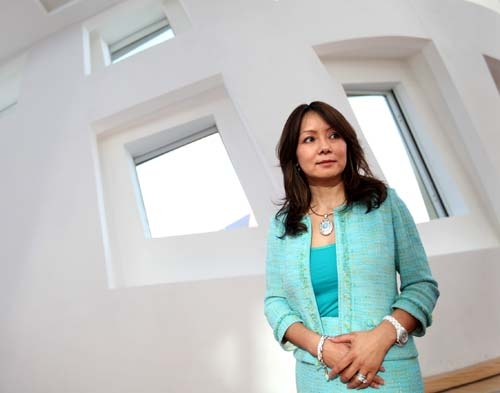Brain center to join clinical trial involving Alzheimer’s


The first multi-site clinical trial in the United States aimed at trying to identify Alzheimer’s disease through an inexpensive blood test will be directed by researchers at the Cleveland Clinic Lou Ruvo Center for Brain Health.
A successful trial could be a precursor to detecting the disease before memory loss occurs, an important step toward allowing earlier therapeutic interventions to halt or stabilize progression of the disease, said Dr. Jeffrey Cummings, director of the nonprofit center in Las Vegas. Scientists hope to identify the disease through a signature level of abnormal proteins from small blood samples.
Currently, doctors largely use brain imaging, psychiatric tests and evaluation of behavior to diagnose the disease. Though costly, none is entirely accurate and is not practical to use on a widespread basis, experts say.
Diagnosing the disease now is as much art as science. Half the people with cognitive impairment turn out not to have the disease, neurologists say.
The only definitive way to diagnose the disease is by direct examination of brain tissue after the patient dies.
"What we want to see with this trial is if this blood test performs as well as the standard diagnostic method we now use," Cummings said Friday. Once that is done, Cummings said, trials would be done to see whether the test also works in diagnosing people without symptoms.
EARLIER DIAGNOSIS
The earlier the disease is diagnosed, the better, Cummings said.
"Even today, though we don’t have a cure for the disease, we can help people quite a bit with existing drugs, we are slowing the progression," he said. "And in the near future, with the way trials are going, we’re going to have much better drugs fighting the disease."
Earlier detection, he said, can help families plan for the future.
Scientists now think Alzheimer’s starts about 10 years before symptoms are noticeable.
The trial, which will be officially announced at noon today in Las Vegas during the Advances in Neurological Therapeutics Conference, should last about four months and will include 165 patients from the Ruvo Center and from two Cleveland Clinic sites in Ohio.
Selection of patients for the trial will be made in the next few weeks.
Dr. Kate Zhong, the senior director of clinical research and development at the Ruvo Center, will direct the research into 160 proteins at all three test sites. She said the trial is using protocols developed by ExonHit, a French biotech company that experts say has invested millions in research.
"Two trials in France, one using 177 patients and the other 205 patients, were very successful, with a sensitivity standard well over 80 percent," she said.
Should the initial trial go as planned, Zhong said, then another trial involving as many as 1,000 people from around the country will go forward.
Maria Carrillo, senior director of medical and scientific relations with the national Alzheimer’s Association, said Friday that at an international conference in Paris, researchers were excited about recent research that dealt with early detection of the disease .
" We all agree that a simple, relatively inexpensive and uninvasive test is necessary," she said.
BLOOD TEST COULD COST $200
Some experts have put the cost of a blood test at $200. Current sophisticated brain imaging costs $2,000 or more.
Whatever company finally wins what some scientists call "a horse race" to find the best detection test for Alzheimer’s will be handsomely rewarded. Cummings said such a test would result "in the multi-billions" for a company.
Carillo said the hope is that Alzheimer’s will be a disease comparable to cardiovascular disease, one that can be detected early and managed over a lifetime.
An estimated 5.4 million Americans have Alzheimer’s disease, with the number expected to increase to 16 million Americans by 2050. If trends continue, Alzheimer’s will cost taxpayer-supported Medicare and Medicaid $20 trillion by 2050, according to an Alzheimer’s Study Group report released last year.
Researchers say finding a way to delay onset of the disease by even five years could save the nation $8.5 trillion over the same 40 years.
Carrillo said researchers are using different methods to find the best way to detect Alzheimer’s. Cerebral spinal fluid tests continue to progress, but experts think they are too invasive to be used on a wide scale.
Australian researchers recently reported good results for a blood test that determines the amount of amyloid plaque, associated with the disease, in people’s brains.
Last month, Robert Nagele, a professor at the University of Medicine and Dentistry of New Jersey School of Osteopathic Medicine, said he developed a blood test that is more than 90 percent accurate at identifying antibodies in the blood specific to the disease.
Nagele said Friday his team looked at blood samples from 50 people with Alzheimer’s disease and 40 without. He also said blood samples from 30 breast cancer patients and 29 with Parkinson’s disease were looked at, so the test could be specific for Alzheimer’s.
Carillo said Nagele’s experiment is exciting but too small to be conclusive.
Contact reporter Paul Harasim at pharasim@review journal.com or 702-387-2908.












